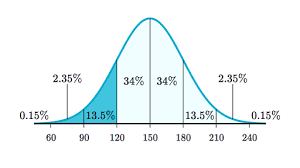“Everyone gets a trophy” remains controversial as does “everyone gets an A.” As a middle school math teacher, I was all about “everyone gets an A.” if only my students had cooperated.
If everyone learned what x was then everyone could get an A and I could get on with my life. If my seventh graders could reliably solve x + 3 = 7 then the following remarkable sequence of events could take place:
- All of my students would be happy
- All of the parents of my students would be happy
- I could avoid meeting those kids who didn’t know what x was for extra help after school. Instead of working additional hours, I could maybe go for a run or grab a beer with some friends
Or so I thought.
But the problem was that the parents of the “bright” kids or the “advanced kids” or the kids who for whatever reason already knew what x was, did not like the idea of everyone getting an A. If there is no variance, there is no score they complained. Which certainly makes sense from the standpoint of undergraduate statistics (“sadistics” to those of us in the trenches) and brings us to norm-referenced tests.
You don’t have to understand the Gaussian distribution. You don’t have to know what a standard deviation is. All you have to know about the normal distribution on a test given to a population is that there’s an average score—and some kids score above the average and some kids score below. (Not all data is normally distributed, but don’t worry about that. We’re only looking at scores that are distributed normally—where most people get a score near the average and a few people get a score that is way above or way below the average.)
All you need to know is that for a norm referenced test there’s an average. If somebody’s child scores a little above the average, somebody else’s child scores a little bit below. If somebody’s child scores waaay above the average, then somebody else’s child scores way below. My favorite insight into averages is that it’s painful to think about what the average person knows and then to reflect that half the people are dumber than that. Or as Churchill said, “the best argument against representative democracy is a five-minute conversation with the average voter.”
But to return to the angry parents at the elite private school where I taught, they weren’t satisfied that their child knew what x was. They needed to know that some other child did NOT know what x was. Or that their child had figured out what x was sooner than some other child had. Which makes sense statistically but still impresses me as kinda mean.
Because somewhere there were kids who had figured out what x was even faster than their kids. No matter what room you’re in, there is always somebody who’s the dumbest person in the room. Or as the cross country coach explained, “it’s about strength of schedule. You can compete against teams that will beat you; you can compete against teams you can beat. It’s up to the coach to determine the schedule. There is always somebody faster.” Unless of course you are Stephen Mokoka who last month slashed two full minutes off the men’s 50-kilometer time. This achievement may be somewhat off point here, but it needs to be mentioned. No one reading this essay could run a quarter mile in 76 seconds. A quarter mile is one lap of the standard track at your child’s high school. Seventy-six seconds is fast. I can’t run a quarter mile is 76 seconds. No one in my running group can run quarter mile in 76 seconds. Stephen Mokoka ran a quarter mile in 76 seconds. Then he ran 123 more quarter miles—each one in 76 seconds–a feat so extraordinary as to beggar description. Thirty-one miles is a long way to run—ask me how I know—and to cover 31 miles in 2:40:13 is prodigious.
The point being that your child may beat this author’s time of 5:58:32 for 50 km, but your child will never ever in a million years come within several lightyears of equaling Stephen Mokoka’s 2:40:13.
Which brings me—“finally” it could be argued—to my point about parenting for this Tuesday:
- Your son will not beat Nolan Ryan’s record of throwing seven no-hitters. Whether someone ever will is a conversation for another time at another bar, but take it to the bank: your child will not throw eight major league no-hitters.
- Marie Curie got a Nobel Prize in Physics in 1903 and a Nobel Prize in Chemistry in 1911. She is the first and only woman to get two Nobel Prizes. Your daughter will not be the first woman to get three.
So how your child feels about their accomplishments is significantly more important than what those accomplishments are. Because there is always somebody somewhere who is faster, smarter, better. Whether your child gets a trophy for showing up on the soccer field or gets an A for knowing what x is, pales in importance with how your child internalizes what happened on the pitch or in the classroom. Asking your child did you win? emphasizes only the small pool of where you live. Asking your child did you get an A? similarly suggests that other children are merely objects to be trod upon. Starting a conversation with, did you do your best? or how did you feel about the result? gives you the opportunity to have a meaningful conversation about who your kid is and how they feel.
The alternative is spending your life chasing Stephen Mokoka’s 50 km record. And you can’t even keep up with him for a quarter mile.








2 thoughts on “Strength of Schedule”
Everyone knows what X is:
X Games
Rated X
and, of course, XXXL
As a separate matter, a friend’s 1st Grade son was given an algebra homework assignment by his teacher as an April Fools joke. The joke was on her. He completed the assignment with a 100% grade. He doesn’t fit under the bell curve. I hope they can find a program he fits into. Otherwise, he will be a very unhappy person.
I love that illustration asking the problem “Find X” and the solution.
Norm-based tests are great for making (some) students and their parents happy
(and of course for making others not so happy). They are also great for teachers,
as they make grading easy: just adjust the grading to match the expectations of
the school (department chair, etc). Some get the “A” some get the “B” etc. No
need to worry whether X is found (somebody will already have found X from
last year’s lessons, or on their own). It’s a comfort. But there’s no satisfaction
unless you’re willing to do Pre- and Post-testing and looking for differences.
Even then, some will learn more, some less, and some will have been out sick.
Maybe a better question is not just “Did you get an A?” but what are you learning?
But certainly, “How do you feel?” is good as well.